Cross-regional dialogue
Cross-regional dialogue
‘From the river to the sea’: One slogan, many meanings
It is often maintained that the slogan ‘From the river to the sea, Palestine will be free’ expresses a genocidal and antisemitic intention. But this is generally not the case. On the contrary, the slogan has historically been used to articulate a wide variety of political strategies for Palestinian liberation.
27.03.2024

Cross-regional dialogue
The old is dead and a new has been born: Welcome the Hindu Rashtra
On 22 January, the Hindu Right in India, with Modi at its helm, inaugurated a temple in the holy city of Ayodhya on a site where less than 22 years ago, a Mosque stood. This Mosque, known as the Babri Masjid, was destroyed by a violent Hindu nationalist mob on December 6, 1992. It was approximate 500 years old and was stated to have been constructed on a piece of land where previously a Hindu temple stood. This temple, Hindu Nationalists claim, marked the birthplace of Lord Rama, one of the most prominent gods in the Hindu pantheon. For this reason, the construction of the new temple is being seen by those in the Hindu Right as the return of Ram and as the inauguration of a new phase of Indian history – one of the Ram Rajya (Reign of Ram).
30.01.2024

Cross-regional dialogue
To Do Art, Politics, Critique, and Theory at the Same Time
In this conversation with RevDem editor Ferenc Laczó, Viet Thanh Nguyen – author of the new book A Man of Two Faces. A Memoir, A History, A Memorial – reflects on the ambiguities and contradictions of growing up Vietnamese-American in the aftermath of what is called the Vietnam War in the US; explains what motivated him to seek a new balance between remembering and forgetting in his new book; shares his ethical considerations regarding the revelation of secrets; shows why self-representation is not enough; and discusses how his dialectic Marxism wavers between Groucho and Karl.
25.01.2024

Cross-regional dialogue
Liberal Democratic Values. Anu Bradford: Digital Empires.
Anu Bradford’s latest insightful, thought-provoking, and nuanced critical analysis of the leading digital world-wide powers. Going beyond the often-referred battle between China and the US, Bradford includes the EU as a digital empire. Similar to her previous book, ‘The Brussels Effect’, the author argues for the EU’s global influence in regulating markets through significant empirical evidence – a distinguishing trait of this book, making it not only informative but also an absorbing read. Bradford uses the term ‘digital empires’ as a metaphor to encompass the current “leading technology, economic, and regulatory powers, each with the ambition and capability to shape the global digital order toward their interests and values.”
23.01.2024

Cross-regional dialogue
The Voice and Representative Democracy in Australia
Australian citizens recently rejected a constitutional amendment which aimed to provide indigenous Australians with formal constitutional recognition. The proposed amendment was intended to create the Voice, a representative body within parliament comprised of Indigenous Australians, to give advisory opinions on the impact of laws on the Indigenous community.
13.12.2023

Cross-regional dialogue
To Free Everybody Through Inclusion – Leila Farsakh on Settler Colonial Violence and the Palestinian Path to Emancipation
In this conversation with RevDem editor Ferenc Laczó, Leila Farsakh explains what has been truly novel and devastating about the conflict in Palestine and Israel this fall; discusses how the Israeli occupation has evolved in recent decades and what major consequences that has had; clarifies why she pleads for prioritizing citizenship rights for Palestinians over the partition paradigm of the last century; reflects on how Palestinian voices and the Palestinian struggle have acquired greater resonance in the United States; and sketches how a resolution based on equality might be achieved.
7.12.2023

Cross-regional dialogue
Slovakia’s Path, the Visegrad Group Today, and the Implications for Europe – Miroslav Wlachovský on Current Changes
In this conversation with RevDem editor Ferenc Laczó, Miroslav Wlachovský – Minister of Foreign and European Affairs of Slovakia in the recent caretaker cabinet headed by Ľudovít Ódor – discusses Slovakia’s role in the EU and his priorities while in office; analyses the recent Slovak elections and the potential consequences its outcome will have in terms of the country’s foreign policy; and reflects on the relationship between Slovakia and Hungary as well as the future of the Visegrad Four. Miroslav Wlachovský is a Slovak diplomat who acted as Minister of Foreign and European Affairs of Slovakia between May and October 2023. Prior to his ministerial appointment, Wlachovský served as Slovak ambassador to the United Kingdom (2011 to 2015) and to Denmark (2018 to 2022). In collaboration with Lucie Hunter
20.11.2023

Cross-regional dialogue
From Pink Tide to a Far-Right-Wave: Latin America’s Authoritarian Encore?
In this conversation with RevDem assistant editor Lorena Drakula, Cristóbal Rovira Kaltwasser sheds light on the historical context, ideological characteristics, and the consequential impact of the recent far-right success in Latin America, encompassing prominent figures from José Antonio Kast and Jair Bolsonaro to Nayib Bukele and Javier Milei.
14.11.2023

Cross-regional dialogue
Clement Akpang on European museums: “To bring changes, first we have to decolonize the European mindset”
In this RevDem podcast episode for the Democracy and Culture section, RevDem assistant editor Karen Culver speaks with Clement Akpang about his research into European museums and how their displays can mitigate or exacerbate perceptions of social inequalities in post-colonial settings.
10.10.2023

Cross-regional dialogue
The Darkened Light of Faith. Melvin L. Rogers on African American Political Thought
In this conversation Ferenc Laczó, Melvin Rogers introduces the thinkers he has studied and explains why he chose to engage with their ideas; discusses the normative vision of African American thinkers and what makes that vision distinctive; clarifies his own approach and analytical vocabulary; reflects on his inspirations and the connections between his recent books; and suggests critical responsiveness as an essential element of democracy.
25.09.2023

Cross-regional dialogue
“Neither Amnesia nor Nostalgia” Discussing the Non-Aligned Movement with Chiara Bonfiglioli, Agustín Cosovschi, and Paul Stubbs
In this conversation with RevDem contributor Una Blagojević, Paul Stubbs, Chiara Bonfiglioli, and Agustín Cosovschi discuss the different meanings of the Non-Aligned Movement and the need to rethink the “West–East–Non-Aligned” trajectories; approach Yugoslav foreign policy critically and explain why they attach such importance to imaginaries; show the importance of developing a “perspective from below” and analyze what a gendered perspective on the movement can yield; and reflect on possibilities of future research.
13.07.2023

Cross-regional dialogue
Turkish parties have always been authoritarian. Tezcan Gümüs on the results of the presidential election in Turkey
Turkey's presidential election was held on 28 May, with incumbent President Recep Tayyip Erdogan winning against Kemal Kilicdaroglu. Kasper Ly Netterstrom talks to Tezcan Gümüs, author of “Turkey's Political Leaders - authoritarian tendencies in a democratic state”, about the reasons for his victory and its consequences.
15.06.2023

Cross-regional dialogue
The Art of Generous Critique: Adam Shatz on the Radical Imagination – and an Overdue Humbling
In this conversation with RevDem editor Ferenc Laczó, Adam Shatz – author of the new collection Writers and Missionaries: Essays on the Radical Imagination – discusses his approach to painting portraits of engaged intellectuals, clarifies his concept of “radical imagination,” reflects on how the history of Algeria has served as his prism, and explains why the predicament of Arab intellectuals may be much more similar to those in the West than is often assumed.
12.06.2023

Cross-regional dialogue
A life for power? Viktor Orbán’s long affair with Hungary
Do the familiar tropes of anti-tyrannical literature explain anything about what happened and is still happening in contemporary Hungary, a country that has changed so profoundly not only as compared to its post-1989 realities but from its 2010 self too?
30.05.2023

Cross-regional dialogue
The Curse of the Margin? Central Europe before and after Communism
In conversation with RevDem assistant editor Lucie Hunter, Dr. Aliaksei Kazharski discusses his newest book Central Europe Thirty Years after the Fall of Communism: A Return to the Margin? (Rowman & Littlefield, 2022, 2022).
26.05.2023

Cross-regional dialogue
The Colonial Origins of Modern Social Thought: George Steinmetz on French Sociology and the Overseas Empire
In this conversation with RevDem editor Ferenc Laczó, George Steinmetz – author of the major new monograph "The Colonial Origins of Modern Social Thought. French Sociology and the Overseas Empire" – sketches the manifold entanglements of French sociology with the French Empire and colonialism; discusses the key ideas and innovations that have emerged in this context; dissects how indigenous scholars fared within the vast network of French institutions over time; illuminates his own approach to intellectual history he calls a historical socio-analysis of the social sciences; and reflect on how contemporary agendas of decolonization could be made more convincing and fruitful, not least by drawing on what French sociologists of colonialism have “partially and tentatively foreseen.”
11.05.2023

Cross-regional dialogue
Thailand’s Conscription: A Threat to Democracy and Freedom
Thailand is about to hold a general election in May 2023. Several progressive political parties are proposing to pass an act to abolish conscription. But the military, which has always meddled with Thai politics, has indicated it will block any efforts in this direction.
8.05.2023

Cross-regional dialogue
Helsinki in Budapest: In Conversation with András Kádár and Márta Pardavi
In the latest RevDem Rule of Law podcast Oliver Garner discusses the work of the Hungarian Helsinki Committee. András Kádár is an attorney at law and co-chair of the Committee. Amongst other engagements and positions he is the Hungarian member of the European Network of Legal Experts in the Non-Discrimination field. Márta Pardavi is the other co-chair of the Committee and she also co-leads the Recharging Advocacy for Rights in Europe (RARE) program. Previously, she has been a policy leader fellow at the EUI School of Transnational Governance in Florence.
3.05.2023

Cross-regional dialogue
Heritage in War: A Key to Define the Future of Ukraine
Dóra Mérai, a lecturer of Cultural Heritage Studies at CEU, explores how heritage - often used to promote divisions - has also been reframed in Ukraine following Russia's invasion "to develop empathy, express solidarity, and help people cope with the difficulties".
28.03.2023

Cross-regional dialogue
Economic Sanctions are Insufficient to Stop the War
A year ago, Russia invaded Ukraine, catching many of us unprepared despite clear signs of impending conflict. The assumption that a European nation would conquer another in the 21st century appeared far-fetched. When the worst scenario happened, experts doubted Ukraine's ability to hold its ground for more than a few weeks. However, the country keeps resisting. The economic domain, along with warfare and geopolitics, presents many examples of events that did not turn out the way it was expected. This op-ed by Volodymyr Kulikov highlights three selected points about economic sanctions, corporate self-sanction, and energy wars.
24.03.2023

Cross-regional dialogue
Living with Double-Think
In this op-ed, the author describes life in Russia's propaganda machine, and how the internet provides venues for Russians to access media that is not controlled by the government.
23.03.2023

Cross-regional dialogue
Weak prospects for Russia’s democratization
Wolfgang Merkel offers a typological classification of Putin's Russia after exploring how it compares with fascist regimes in Germany and Italy as well as Stalinism, and opines that several factors will contribute to Russia's "poor prospects" for democratization.
22.03.2023

Cross-regional dialogue
Aakar Patel on His New Toolkit to Protest and Peaceful Resistance
In this conversation with RevDem editor Ferenc Laczó, Aakar Patel – author of "The Anarchist Cookbook. A Toolkit to Protest and Peaceful Resistance" – discusses why he considers dissent essential to improving society; what lessons we can draw from successful recent examples of protest; which options activists have to amplify and maximize their efforts; and how egregious laws on the book, practices of denying rights, and the extreme disparities of Indian society have shaped activists’ possibilities and agenda.
13.03.2023
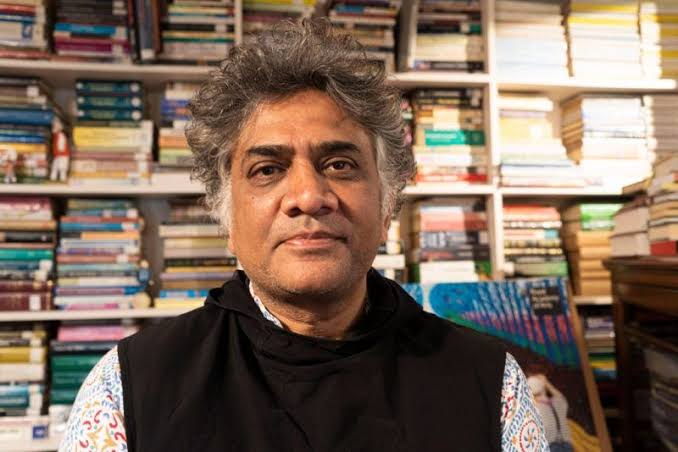
Cross-regional dialogue
Cautious Celebration over Compelled Retreat on Foreign Agent Law in Georgia
Mariam Begadze provides recent updates and context on the Georgian Law on Agents of Foreign Influence, which lawmakers from the ruling Georgian Dream party yesterday pledged to unconditionally withdraw following intense protests.
10.03.2023

Cross-regional dialogue
Democracy First: Shadi Hamid on Why and How to Support Democratic Change
In this conversation with RevDem editor Ferenc Laczó, Shadi Hamid – author of the new book "The Problem of Democracy: America, the Middle East, and the Rise and Fall of an Idea" – addresses democratic dilemmas that cannot be wished away; explains how he distinguishes between liberalism and democracy and why he proposes a democracy-first strategy; assesses the democratic record of Islamist political movements and parties; and discusses how the US could use its leverage in the Middle East to support or even foster democratic change.
13.02.2023
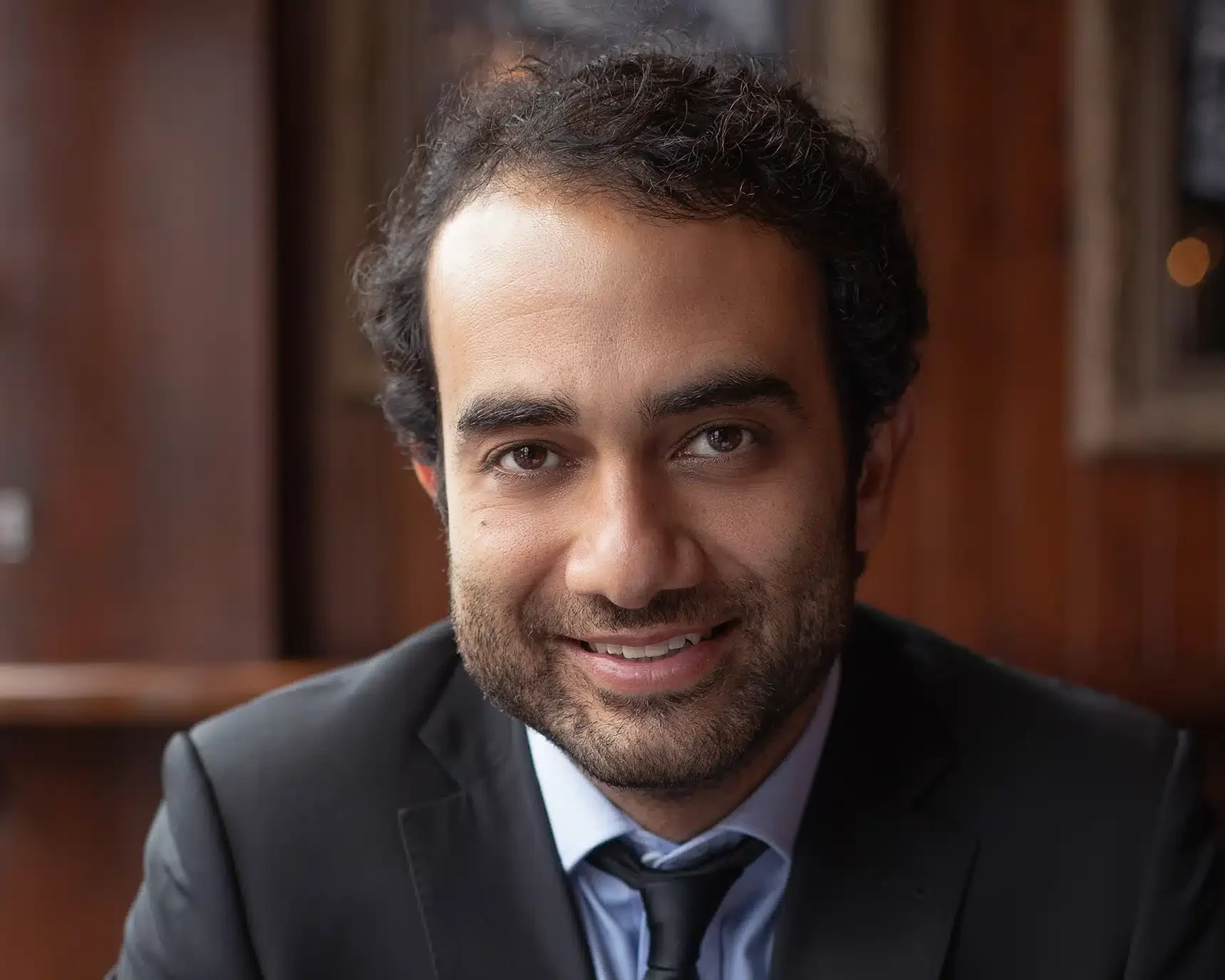
Cross-regional dialogue
A democratic Myanmar would still need armed forces
In a recent piece for the Review of Democracy, “It’s time to imagine a future for Burma without armed forces,” Thiha Wint Aung and Htet Min Lwin argue that the current military forces in Myanmar are flawed to the point that they must be abolished. I concur with their criticism of Myanmar’s security establishment. I cannot, however, see a future for the Myanmar political union that could stand without a capable national military.
11.02.2023

Cross-regional dialogue
It’s Time to Imagine a Future for Burma without Armed Forces
In this op-ed, authors Thiha Wint Aung and Htet Min Lwin argue for the abolition of the armed forces in Burma.
31.01.2023
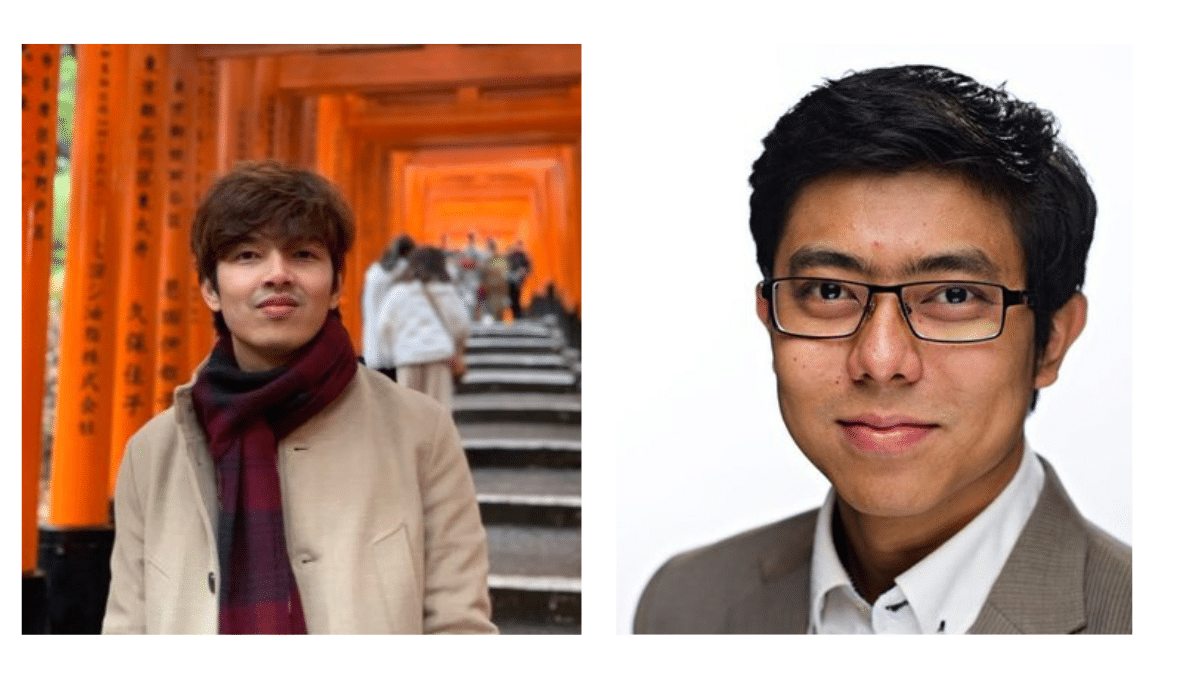
Cross-regional dialogue
“In a way, the Turkish opposition is a huge success” Murat Somer on the political situation in Turkey
Recep Tayyip Erdoğan has dominated Turkish Politics since 2002, but now the country finds itself in a massive economic crisis and the president has never been this unpopular. With elections to be held within a year, the long-oppressed opposition is therefore eyeing a historic opportunity to get rid of Erdoğan and his increasingly authoritarian regime. But what is the state of the Turkish opposition, and are they ready to seize the moment? Kasper Ly Netterstrøm talked about it with Professor Murat Somer from Koç University in Istanbul.
11.07.2022

Cross-regional dialogue
In Conversation with Tarunabh Khaitan: Checking the Ascendant Executive in India
India, like many countries, faces democratic backsliding. Our editor Gaurav Mukherjee talks to Tarunabh Khaitan about his recent work on the phenomenon of democratic backsliding in India, the rise of an unchecked executive, and the role that courts and opposition parties play in protecting democracy.
29.03.2022

Cross-regional dialogue
The War in Ukraine and the Refugee Crisis
Dr. Marta Jaroszewicz elaborates on the current refugee crisis as the result of the war in Ukraine, the situation in the neighbouring countries, and the EU refugee protection.
24.03.2022

Cross-regional dialogue
Latin America: When parties become cartels, people are going to rebel against them [Party Co-Op Series]
In this episode, Zsolt Enyedi and Jennifer McCoy examine party cooperation in Nicaragua, Chile, Venezuela and Colombia.
23.03.2022

Cross-regional dialogue
5 Books on Putinism
Our editors Kasia Krzyzanowska and Michal Matlak have selected 5 books that encourage a better understanding of the aggressor: Vladimir Putin and the system he has created.
12.03.2022

Cross-regional dialogue
The competitive element in competitive authoritarianism is still very pertinent. Dimitar Bechev on Turkey Under Erdogan
Dimitar Bechev in conversation with Ferenc Laczó discusses the current shape of the Turkish political system.
22.02.2022

Cross-regional dialogue
Máté Szalai: Three narratives about the Qatari elections
Máté Szalai considers the three key narratives that observers and analysts use when discussing the historic elections held in Qatar this October. The first narrative highlights the elections as a vital milestone in the slow process of democratization, the second noted the importance of identity politics and voting rights, and the final narrative opined that the elections were a PR stunt to bolster Qatar’s public image.
3.12.2021

Cross-regional dialogue
Linking sexual diversity to otherness is an old phenomenon
Bence Bari interviews Tamás Dombos, the representative of the Hungarian LGBTQI organization ‘Háttér Society’ concerning the recently adopted Hungarian anti-LGBT measures, their transnational and historical background with respect to the global dynamics of acceptance, and homophobia between the Western and Eastern hemisphere.
26.11.2021

Cross-regional dialogue
Márki-Zay would be a Never Trump Republican in America
In this conversation with RevDem editor Ferenc Laczó, Gábor Tóka talks about the Fall 2021 Hungarian opposition primaries
30.10.2021

Cross-regional dialogue
Peru: A Democracy That Does Not Deliver
Diego A Salazar-Morales analyses for us the political crisis in Peru.
16.10.2021
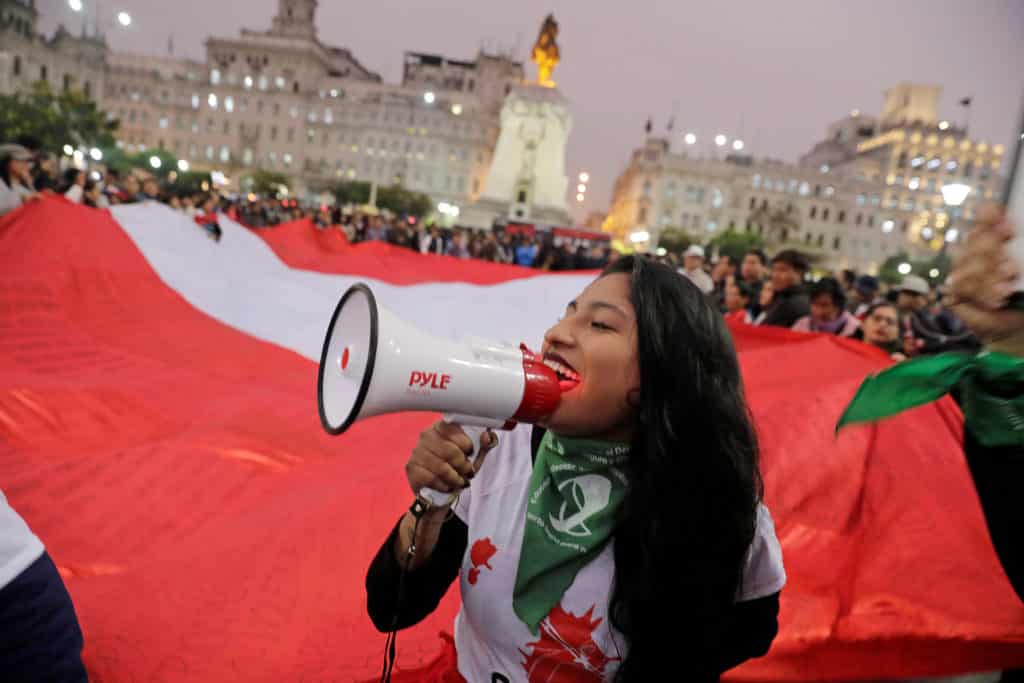
Cross-regional dialogue
Why is the collective protection of democracy in the Americas doomed to fail? The Inter-American Charter at 20
Stefano Palestini writes about the Inter-American Democratic Charter on the occasion of its 20th anniversary.
4.10.2021

Cross-regional dialogue
Is Democracy in Tunisia Threatened or is it on the Way to Consolidation?
Ameni Mehrez analyses the political situation in Tunisia after the summer wave of protests.
2.10.2021

Cross-regional dialogue
Samuel Moyn on the US’ Attempt to Humanise its Imperial Burden
Ferenc Laczo in conversation with Samuel Moyn (Yale University) about his book "Humane. How the United States Abandoned Peace and Reinvented War".
6.09.2021

Cross-regional dialogue
Cuban Spring in the Summer? Elaine Acosta on the Cuban protest
Stefano Palestini speaks with Cuban sociologist Elaine Acosta about the meaning and causes of the popular uprising against the Cuban government
2.08.2021

Cross-regional dialogue
After the Election in Iran: What to Expect From the New President?
Luíza Cerioli analyses the situation of Iran after the presidential elections, focusing on the international consequences of this choice.
30.07.2021

Cross-regional dialogue
Can Technology Save Democracy?
How can we employ technology to facilitate the democratic process? Which platforms are more democratic than others? These and more questions are answered by Kevin Esterling, Professor of Political Science and Public Policy at the University of California in a conversation with the RevDem assistant editor, Catherine Wright.
16.07.2021

Cross-regional dialogue
Owning the Constitution: Chile’s Unexpected Civil Revolution
On 4 July 2021, Chile's "unexpected" Constitutional Convention commenced following a grassroots civil revolution against the current regime since 2019. Co-Head of Section for Cross-Regional Dialogue Stefano Palestini Céspedes (Catholic University of Chile) interviews Julieta Suárez-Cao (Catholic University of Chile) and Patricia Politzer (Journalist and Member of the Chilean Constitutional Assembly) to discuss their roles in this process.
9.07.2021

Cross-regional dialogue
Democracy Rules: A Book Discussion with Jan-Werner Müller and His Critics
Review of Democracy will host a discussion of the book with the author to be moderated by Zsolt Enyedi (Central European University) and with three prominent voices in the field: Gráinne de Búrca (New York University), Jan Kubik (Rutgers University and University College London), Jeffrey C. Isaac (Indiana University) and Karolina Wigura (University of Warsaw)
8.07.2021

Cross-regional dialogue
What Are the Sources of Democratic Legitimacy? Till van Rahden on Democracy as a Way of Life
Elias Buchetmann talks to Till van Rahden about his latest book Demoracy: A Fragile Way of Life, which focuses on the history of democracy in the Federal Republic of Germany and raises fundamental questions about the nature of democracy around the world.
24.06.2021

Cross-regional dialogue
An American in a Strangely Familiar World. Ben Rhodes explores the world the U.S. has made
Ferenc Laczo reviews "After the Fall. Being American in the World We've Made" by Ben Rhodes.
21.06.2021
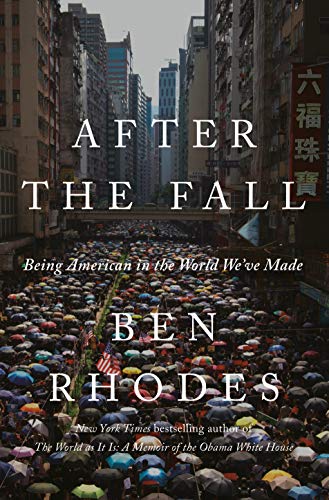
Cross-regional dialogue
The New Logic of Democratic Politics [Podcast and Interview]
Our editor Ferenc Ferenc Laczó talks with Chris Bickerton about his latest book Technopopulism.
14.05.2021

Cross-regional dialogue
There is still hope. Interview with Adam Bodnar, Polish Ombudsman
On April 21, Review of Democracy and CEU Democracy Institute hosted Adam Bodnar, Polish Ombudsman.
30.04.2021

Cross-regional dialogue
Stasavage: Democracy requires continuous effort (PODCAST AND LONG READ)
David Stasavage (New York University) in conversation with RevDem editor Ferenc Laczo (Maastricht University) about his recent book “The Decline and Rise of Democracy”, which presents the global history of democracies since ancient times.
23.04.2021

Cross-regional dialogue
Sustainable Democracy after 25 years. Conversation with Adam Przeworski
Our editor-in-chief Laszlo Bruszt asks Adam Przeworski about the contemporary relevance of "Sustainable democracy", a seminal book published 25 years ago.
21.04.2021
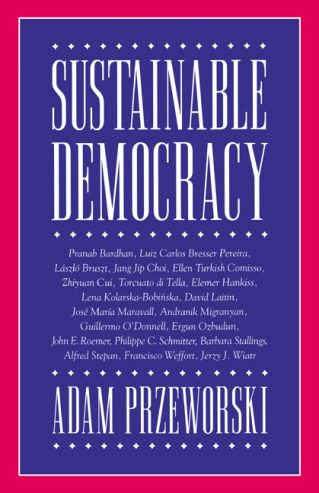
Cross-regional dialogue
A Certain Anachronistic Appeal. On Conversations with Francis Fukuyama
On the 3rd of May, the Georgetown University Press will publish "After the End of History. Conversation with Francis Fukuyama". Our editor Ferenc Laczo from Maastricht University reviews the volume.
13.04.2021

Cross-regional dialogue
Myanmar After the Coup
In a conversation with Assistant Editor Gaurav Mukherjee, Melissa Crouch discusses the rapidly evolving situation involving the military coup in Myanmar on 1 February 2021.
19.03.2021

Cross-regional dialogue
It’s Identity, Stupid! An Interview with Guy Sorman on Identity as a Political Factor
Identity is a very strong political factor in the current world Guy Sorman*, philosopher and economist, the author of “The Conservative Revolution in America,” said in an interview with Michał Matlak.
18.02.2021

